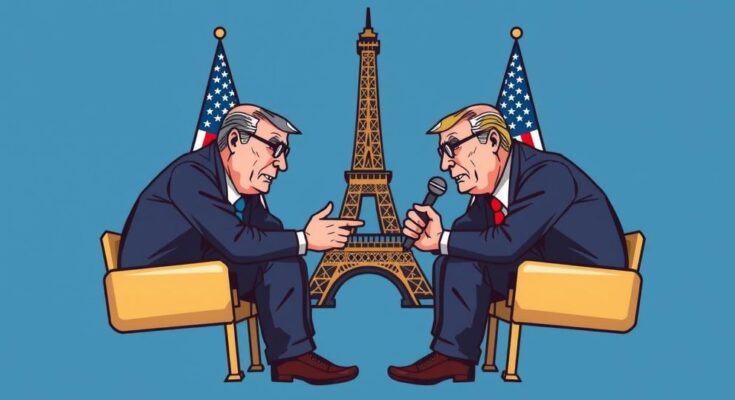The United States under President-elect Donald Trump is likely to withdraw from the Paris Agreement and possibly the UN Framework Convention on Climate Change, raising concerns about ceding influence to China. This process is projected to take one year, as Trump’s transition team outlines executive orders for withdrawal. Experts emphasize the need for Washington to develop alternative strategies to maintain competitiveness in global climate discussions.
The anticipated withdrawal of the United States from the Paris Agreement under President-elect Donald Trump has stirred significant concerns regarding the implications of this decision on global climate efforts. Reports indicate that Trump’s transition team has already prepared executive orders for this withdrawal, a process that is expected to take one year. In addition, there is speculation regarding a potential exit from the UN Framework Convention on Climate Change, which could solidify the Paris withdrawal and complicate re-entry for future administrations. Peter Hill, a former CEO of COP26, cautioned during the Energy Intelligence Forum 2024 in London that it would be unwise for Washington to allow China to gain an advantage in energy transition matters. This highlights the need for the U.S. to present an alternative strategy to maintain its position in the global climate arena.
The Paris Agreement, established in 2015, aims to address the challenges posed by climate change through cooperative international efforts to limit global warming. The withdrawal of the United States, one of the largest greenhouse gas emitters, could significantly impact global climate policies and potentially shift the balance of power within international climate negotiations to countries such as China. This situation emphasizes the strategic importance of U.S. engagement in climate agreements to bolster its international credibility and leadership.
In conclusion, the potential withdrawal of the United States from the Paris Agreement could have profound implications not only for U.S. climate policy but also for the international climate landscape. With discussions around exiting both the Paris Agreement and the UN Framework Convention on Climate Change, the strategic moves by the Trump administration may inadvertently cede influence to other nations, especially China. Addressing these challenges will require presenting compelling alternatives to ensure the U.S. maintains a strong leadership role in global environmental initiatives.
Original Source: www.energyintel.com




